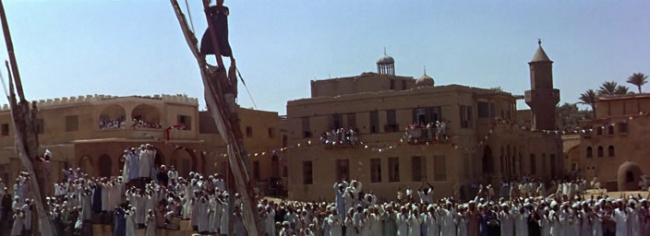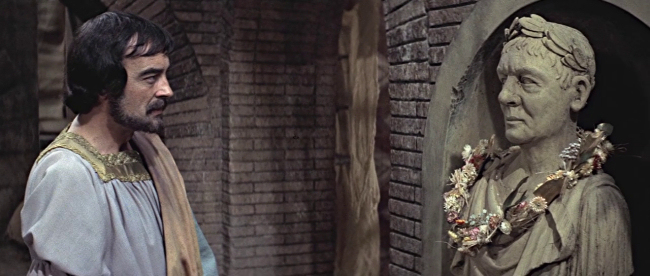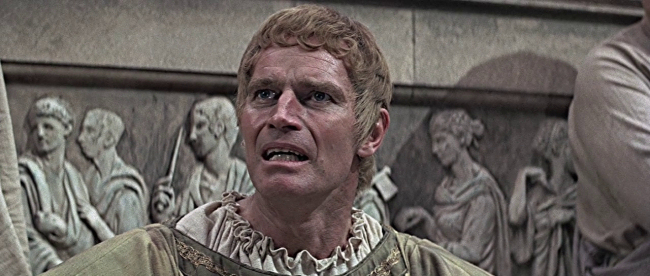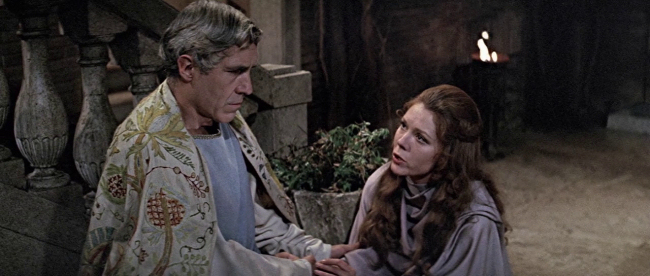
Charles George Gordon was a British officer whose list of seemingly impossible exploits occurred all over the world. He earned the commendation of the Emperor of China for putting down a rebellion and the love of the people in the Sudan for disrupting the slave trade. It all makes the events of 1966's Khartoum seem preposterous but I was surprised to read later how much of it was true. That said, the film has a lot of faults, generally coming off as a poor man's Lawrence of Arabia with its overuse of process shots, clear evidence of poor research, and some improbable plot contrivances. But the cast is great, including Charlton Heston as Gordon and Laurence Olivier as his opponent, the Mahdi, and Ralph Richardson is perfectly cast as a somewhat idealised version of the British Prime Minister William Gladstone.
In this version of history, Gladstone is secretly a strong supporter of Gordon's. Why he should keep it a secret when the public and Queen Victoria are passionately on Gordon's side is put down to the Parliament not liking the cost of Gordon's plan to defend the Sudanese town Khartoum; the Siege of Khartoum is the central subject of the story.

There are some terrific battle sequences in the film, though far from the best I've seen. There are too many shots of guys clutching their chests and falling over theatrically and too many times where the camera is misplaced, as when the front line of the Mahdi's troops rush directly at the camera moving backwards--the men run with obvious restraint to avoid colliding with the thing. But the biggest problem is that the film's stars, Charlton Heston and Laurence Olivier, clearly spent very little time on location. We almost never see the latter--and almost always on soundstages when we do--and the former is lamely inserted with process shots that are particularly obtrusive in a night battle.
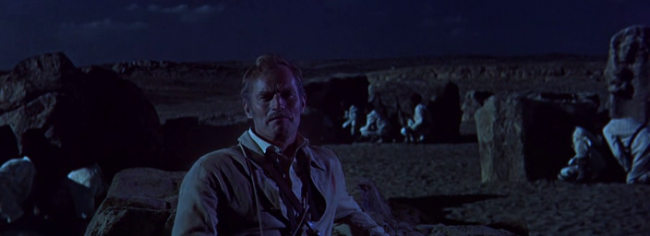
The film has two scenes where Gordon and the Mahdi meet in the Mahdi's tent; both scenes are somewhat preposterous poetic license and the idea that Gordon can safely drop in on the Mahdi is ridiculous even as the film makes a point of having characters remark on how dangerous it is. But apparently Gordon and the Mahdi really did correspond and the idea of having Heston and Olivier share scenes must have been too good to pass up, especially since the relationship between the two men ends up being the best part of the film.

It turns out, each sees something in the other similar to himself; each believes himself a key figure in the service of God. To the point where the implications of Gordon's defeat are troubling even to the Mahdi. The film spends a lot of time building up Gordon the point where you start to wonder if it's all to flatter Charlton Heston but it pays off in the end, giving the viewer an idea of what it's like when people have so much spiritual investment in their belief in one man.

There's a lot of brown-face in the film, really more than there needs to be, though personally I don't mind when its obviously someone as singular as Laurence Olivier. But the dozens of white actors playing Sudanese men shows just how little the production was willing to work with the location. Meanwhile, Charlton Heston's English accent seems almost okay in some scenes and then is completely absent in others. But otherwise he's good in the role and the film has some great visuals shot in Ultra Panavision.
